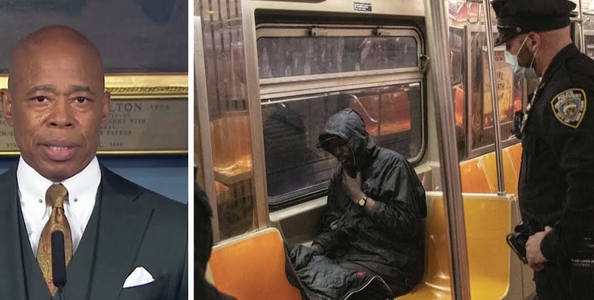Photo: YouTube
This week, New York City Mayor Eric Adams announced that he is empowering police and emergency service providers to forcibly hospitalize unhoused community members they perceive to have a mental health condition, including if they pose no discernible risk to others. This approach is based on false stereotypes and the subjective interpretation of officers untrained in mental health, risking abuse and violent police encounters.
Adams’ push to disrupt unhoused communities follows his unsupported claim that people with mental health conditions have been the primary drivers of crime in New York’s subway system. But people with mental health conditions are not more violent and do not engage in criminal behavior more than the population at large.
The push for involuntary treatment is not evidence-based. Studies of coercive mental health treatment have not proven positive outcomes. Instead, involuntary treatment risks further traumatizing people with mental health conditions, is discriminatory, and can lead to multiple human rights violations, including the practices of seclusion and restraint.
This new policy also risks increased violent police encounters. People with mental health conditions are 16 times more likely to be killed during a police encounter. This risk is particularly exacerbated when the person living with a mental health condition is Black.
Targeting unhoused populations will disproportionately impact Black and Latinx New Yorkers, who due to discrimination in housing, employment, and healthcare, experience disproportionately high rates of houselessness and are persistently over and misdiagnosed with mental health conditions.
Under international human rights standards, mental health treatment should always be based on the will and preferences of the person concerned. Housing or disability status does not strip a person of their legal capacity or personal autonomy. Adams’ push for a system of forced hospitalizations flouts these criteria and borrows from the well-worn playbook of criminalizing poverty in New York.
In order to truly serve unhoused people living with mental health conditions, New York must invest more resources in voluntary, community-based alternatives such as permanent supportive housing and peer-led, trauma-informed programs. New York has a duty to treat all its residents with dignity and without discrimination.


















